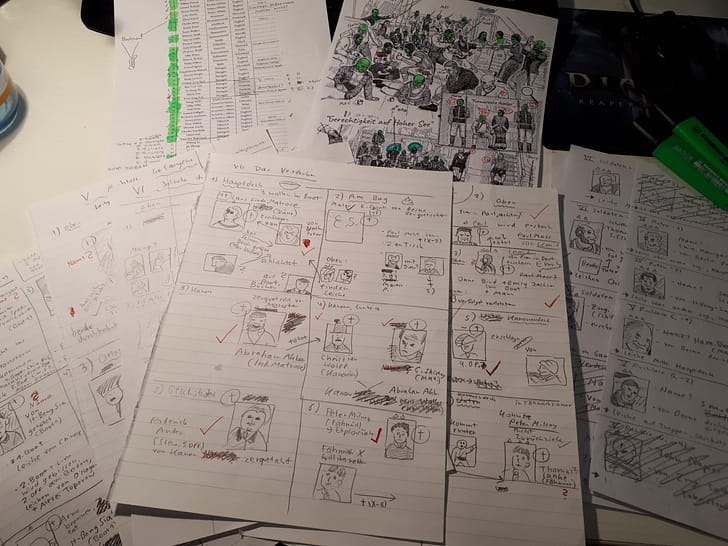Feeling really smart for a brief moment is one of the best rewards a video game can offer me. It’s not easy to achieve. When I was younger, it was enough to quote a few fun facts from the Mickey Mouse magazine to my family. Later, I was disillusioned to discover that half of my circle of friends were misunderstood geniuses according to highly reputable online IQ tests. What a bummer. I was always one to check off in teen magazines (er, not my own, of course, because intelligent girls don’t buy such rubbish) that intelligence was more important than beauty or fame. When it became apparent that I might not make it to the Nobel Prize, I had to seek reassurance through other avenues.
If you’re chasing the good feeling of wanting to feel like Sherlock Holmes despite your D in maths, you quickly end up with point-and-click adventures. However, many of them have the problem that some puzzles are not as logically comprehensible as they should be. In my case, there is also an unhealthy ambition that prevents me from taking a look at walkthroughs. While I can live with failing a dexterity challenge and getting help, I don’t want my brain to show any weakness when it comes to puzzles. And then this endless running around when you don’t know if you’re still missing an item! So I kept abandoning adventure games in frustration until I turned my back on the genre completely.

Then, out of nowhere, came Return of the Obra Dinn. The indie game developed by Lucas Pope let you investigate on board of a ship abandoned by its crew. Here, however, no dialogue trees were worked through, but merely the seconds around violent deaths were observed. Reduced to the essential murder mystery, without sacrificing ambition, one investigates the fate of each person and enters it in the logbook. I spent hours spellbound in front of paper and pencil, dreaming of murders in black and white, and the feeling when you could correctly complete another entry was incredibly satisfying. Obra Dinn was not easy, but these small feelings of success meant that there was never any question of me giving up.
Unfortunately, I had to wait four years afterwards for a comparable gaming experience, but recently The Case of the Golden Idol was released. Don’t be fooled by the graphic style reminiscent of classic point-and-click adventures, because it has much more in common with Obra Dinn. You investigate murder cases by looking at snapshots from which you have to combine what exactly happened. However, the interface and controls are much more beginner-friendly, the amount of paper used is less, and the overall level of difficulty has also been set a little lower here. What both games have in common is the – at least for me – fair balancing. No one wants to be insulted by puzzles that are too easy, but the completely logically structured tasks make it possible to fight through without help and without much frustration. And then Golden Idol also rewards you with exactly that wonderful feeling of hubris that makes you believe for a brief moment that you can solve every cold case in criminal history – or plan the perfect murder yourself. I would like to see more puzzle games like this that tell an exciting story, but not through dialogue, but purely through observation and combination.
The Case of the Golden Idol was developed by Color Gray Games, released in October 2022 for the PC and was my personal game of the year. It could use some more attention, so go check it out.
This post is also available in:
![]() German
German

